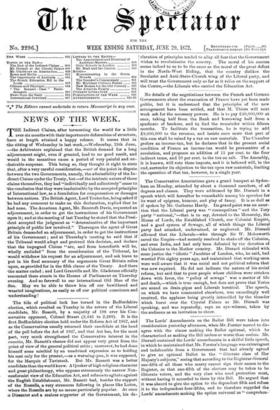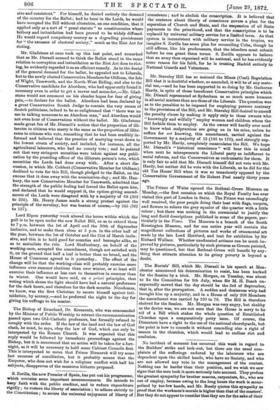The Lords' Amendments on the Ballot Bill were taken into
consideration yesterday afternoon, when Mr. Forster moved to dis- agree with the clause making the Ballot optional, which he characterised as making the Bill useless or worse than useless. Mr. Disraeli sustained the Lords' amendments in a skilful little speech, in which he maintained that Mr. Forster's language was extravagant and indefensible from a Government that had already agreed to give an optional Ballot to the "illiterate class of Her Majesty's subjects," seeing that according to the Registrar-General one-fifth of all those who marry cannot sign their names to the Register, so that one-fifth of the electors may be taken to be illiterate voters, and the very class who need protection most, without having it accorded to them by We Bill. He argued that it was absurd to give the option to the dependent fifth and refuse it to the independent four-fifths, and he therefore regarded the Lords' amendments making the option universal as " comprehen."
sive and consistent." For himself, he denied entirely the demand of the country for the Ballot ; had he been in the Lords, he would have accepted the Bill without alteration, on one condition, that it applied only as a sort of "penal statute" to constituencies where bribery and intimidation had been proved to be widely diffused. He would regard compulsory secrecy as a degrading punishment for "the excesses of electoral society," much as the Riot Act for rioting.



































 Previous page
Previous page